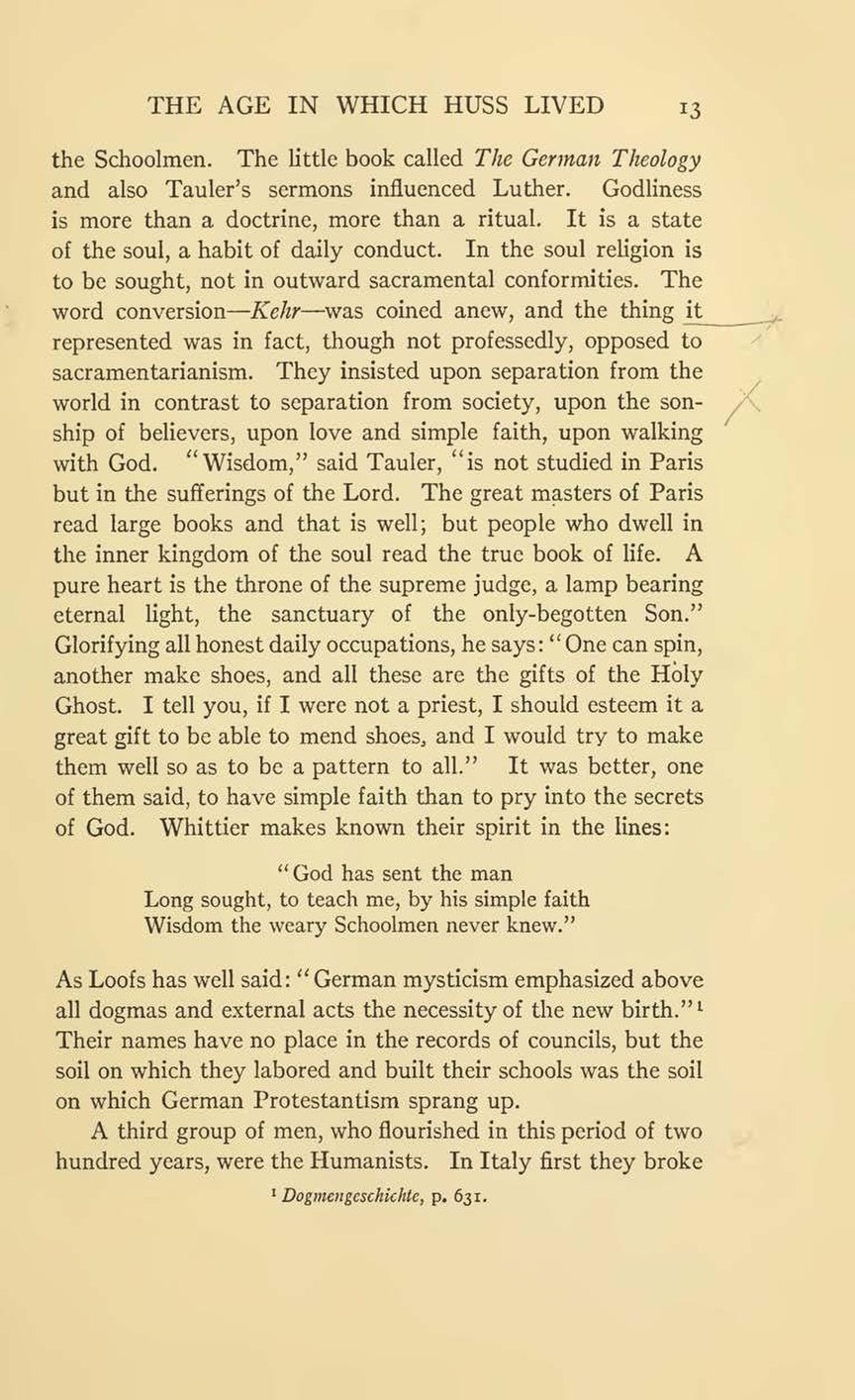the Schoolmen. The little book called The German Theology and also Tauler’s sermons influenced Luther. Godliness is more than a doctrine, more than a ritual. It is a state of the soul, a habit of daily conduct. In the soul religion is to be sought, not in outward sacramental conformities. The word conversion—Kehr—was coined anew, and the thing it represented was in fact, though not professedly, opposed to sacramentarianism. They insisted upon separation from the world in contrast to separation from society, upon the sonship of believers, upon love and simple faith, upon walking with God. “Wisdom,” said Tauler, “is not studied in Paris but in the sufferings of the Lord. The great masters of Paris read large books and that is well; but people who dwell in the inner kingdom of the soul read the true book of life. A pure heart is the throne of the supreme judge, a lamp bearing eternal light, the sanctuary of the only-begotten Son.” Glorifying all honest daily occupations, he says: “One can spin, another make shoes, and all these are the gifts of the Holy Ghost. I tell you, if I were not a priest, I should esteem it a great gift to be able to mend shoes, and I would try to make them well so as to be a pattern to all.” It was better, one of them said, to have simple faith than to pry into the secrets of God. Whittier makes known their spirit in the lines:
“God has sent the man
Long sought, to teach me, by his simple faith
Wisdom the weary Schoolmen never knew.”
As Loofs has well said: “German mysticism emphasized above all dogmas and external acts the necessity of the new birth.”[1] Their names have no place in the records of councils, but the soil on which they labored and built their schools was the soil on which German Protestantism sprang up.
A third group of men, who flourished in this period of two hundred years, were the Humanists. In Italy first they broke
- ↑ Dogmengeschichte, p. 631.
